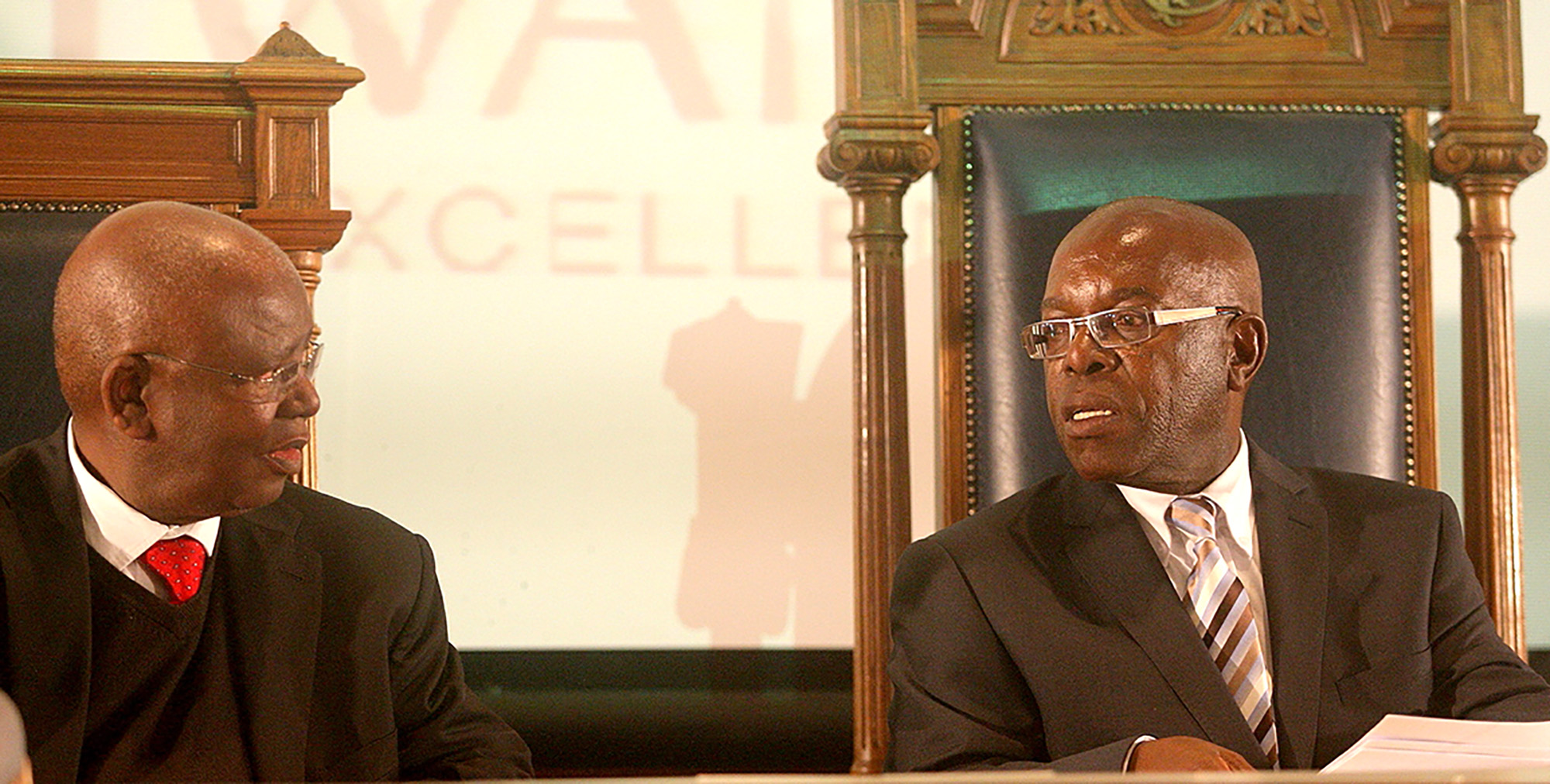An attempt to appeal a high court judgment setting aside the findings of the Seriti Commission of Inquiry into the controversial 1999 Arms Deal, officially known as the Strategic Defence Procurement Package and which cost more than R140-billion, has failed.
The high court in Pretoria ruled on Wednesday 31 August: “No basis has been laid for this Court to grant condonation of a filing of an application of leave to appeal which is more than two years late.
“Even if this Court was inclined to be excessively generous, there is no basis by which there are prospects of success nor is there a point of law upon which the disposition of this case rests and which requires the attention of a higher court.”
Dismissed with costs
The application to appeal, by judges Willie Seriti and Hendrik Musi, who were accused of failing to properly investigate the Arms Deal, was therefore dismissed with costs, including the costs of two counsel.
It remains to be seen whether they will take the matter to the Supreme Court of Appeal or the Constitutional Court.
In 2011 former president Jacob Zuma announced he would appoint a commission of inquiry into the Arms Deal.
Seriti was the chair of the commission, while Musi was a member.
The commission’s final report was publicly released in 2016.
In a speech at the time, Zuma touched on a few of the commission’s findings.
“On whether any contract concluded through the procurement process is tainted by any fraud or corruption,” he said, “the Commission states that the widespread allegations of bribery, corruption and fraud in the arms procurement process, especially in relation to the selection of the preferred bidders and costs, have found no support or corroboration in the evidence, oral or documentary, placed before the Commission.”
Despite what Zuma said, the commission’s findings were widely viewed as an effective cover-up.
Corruption Watch and Right2Know subsequently initiated legal proceedings to review the commission’s findings.
Seriti and Musi had not opposed their application for this and, according to this week’s court judgment, claimed “that they relied on the Presidency and Minister of Justice and Constitutional Development to defend the report [presumably the commission’s report].”
In August 2019 the North Gauteng high court set aside the commission’s findings.
Commission failures
Daily Maverick at the time reported that “Gauteng Judge President Dunstan Mlambo said it was ‘inexplicable’ for the inquiry… to have ignored essential information before finding there was no evidence of corruption, improper influence, or fraud in the Arms Deal.”
The court had further found that it was not “clear that the commission failed to enquire fully and comprehensively into the issues which it was required to investigate on the basis of its terms of reference”.
Visit Daily Maverick's home page for more news, analysis and investigations
This week’s court judgment said the timeline of how legal issues unfolded was important to note and that Seriti and Musi had not initially reacted to the August 2019 ruling.
“Some 21 months later, on 10 May 2021 they received a complaint of gross misconduct from the Judicial Service Commission (JSC) at which point, although they claimed that the judgment was wrongly decided, they decided to change their minds after receiving the complaint from the JSC,” it said.
“Four further months elapsed after receiving the complaint before they filed an application for leave to appeal.”
Gross misconduct complaint
Seriti and Musi, according to the judgment, explained that the four-month delay was due to having to consult and prepare a response to the gross misconduct complaint.
The judgment said it was “clear” their application to the court for leave to appeal “would never have been lodged had it not been for the complaint lodged before the JSC.”
Seriti, according to the judgment, had stated: “We have since been advised to look into the possibility of appealing and challenging the findings of the high court because those findings are being used to underpin their complaints of judicial misconduct against us.”
Appeal application two years late
It was not Corruption Watch or Right2Know’s actions that lodged complaints of judicial misconduct against Seriti and Musi — it was organisations Open Secrets and Shadow World Investigations.
According to the judgment, Seriti and Musi “were prepared to accept a ‘wrongly decided’ outcome” — in other words, the August 2019 court finding — until the judicial misconduct complaint was lodged.
The judgment summarised the matter: “The application for leave to appeal was more than two years late. The only excuse proffered by [Seriti and Musi] was that their anxiety about the consequences of the judgment was triggered by a complaint lodged before the Judicial Service Commission.
“For the reasons advanced there is not but a veneer of a justification for applying for leave to appeal in a case in which two senior judges decided to abide the decision of this Court and did nothing to change their mind until the complaint was lodged.”
No prospects of a different conclusion
The judgment also found that there were “no prospects that another court would come to a different conclusion regarding the assessment of the flaws and failures inherent in the Commission of Inquiry report as was set out in the review judgment.”
In 2020 Paul Holden, for Shadow World Investigations, estimated that the Arms Deal (when adjusted for inflation and based on the rand that year), cost R142-billion.
Some of the Arms Deal history is succinctly detailed in the August 2019 court judgment.
It said in 1997 a procurement process started to implement the Strategic Defence Procurement Package.
This was finalised in 1999.
“Through the [deal], the South African government acquired a number of weapons systems,” the court papers said.
“From its inception, the [deal] was engulfed in controversy arising from allegations, in the public domain and in the media, of corruption and other criminal conduct relating to the procurement process undertaken to acquire these various weapons systems.” DM





